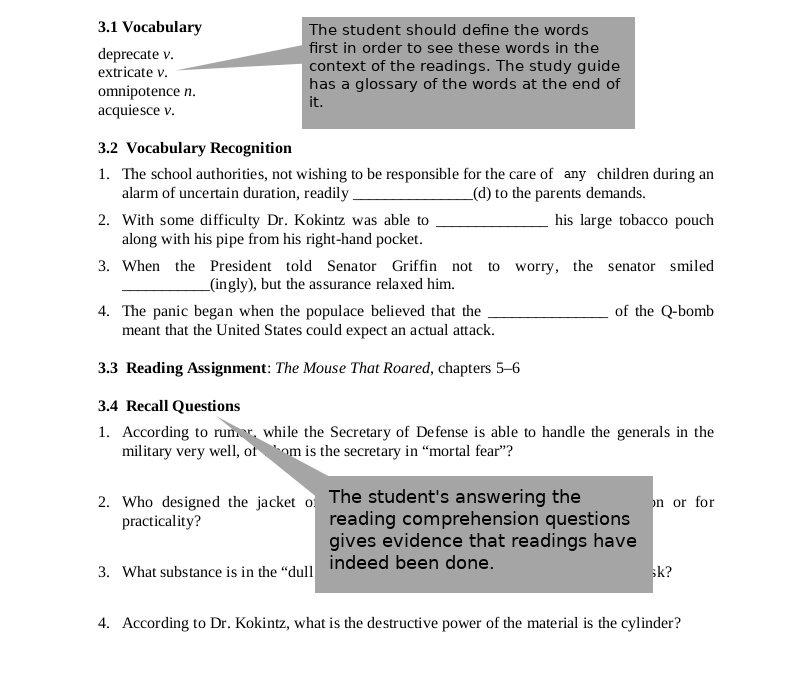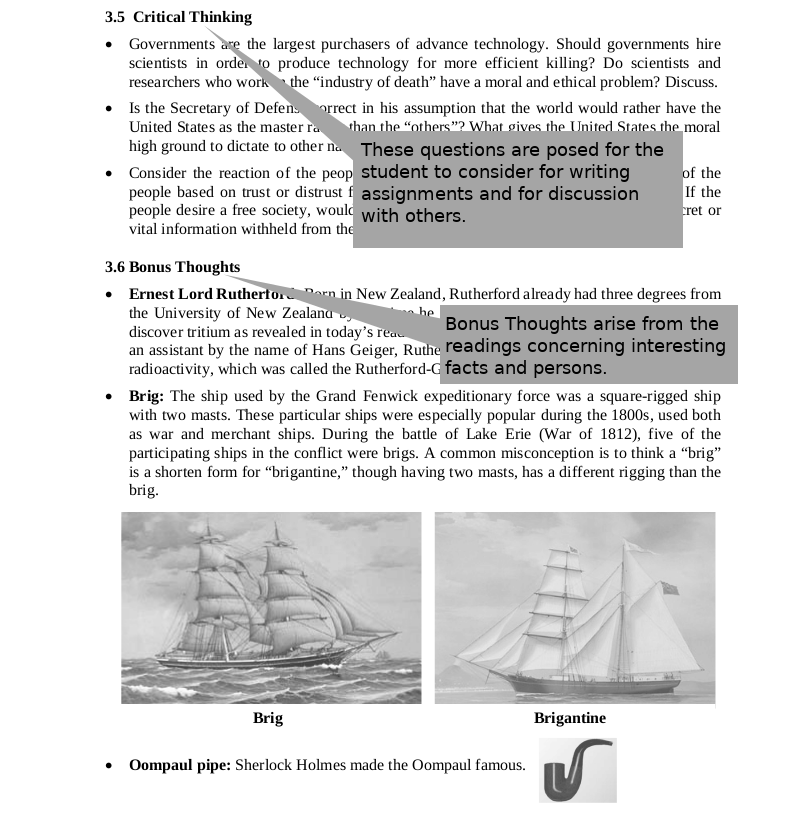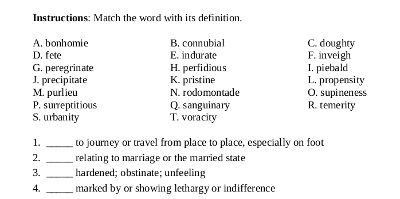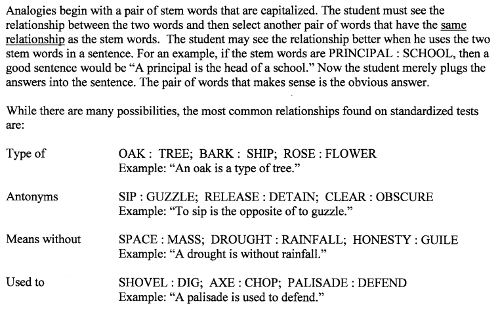1 THE SUGGESTED SCHEDULE
Our courses begin with the suggested schedule. The schedule assumes a 36-week course with five days per week of instruction, divided between reading and writing. We have found the best practice is having the student concentrate on either reading or writing, never both at the same time. We want students to focus on the task at hand, not having them dabbling a little with reading and then a little with writing during the time devoted to English.
2 THE REQUIRED READING LIST
Each course will have a complete book list. The booklist has the titles that will be read by the student during the year. Most editions of the works are compatiable with the daily-reading worksheet. However, if a particular edition is required, the ISBN will be supplied. Many of these works may already be in your personal library. There are many inexpensive copies of the works, such as the Thrift Editions from Dover Publications.
3 THE DAILY ASSIGNMENT
The schedule shows the lesson to be accomplished by the student for a particular day. The study guides (Student's Companion) has vocabulary words to be learned, the reading assignment, reading comprehension questions, as well as some questions for critical thinking. These latter questions are possible topics for paper assignments. We recommend that reading comprehension questions should be answered "open-book."





